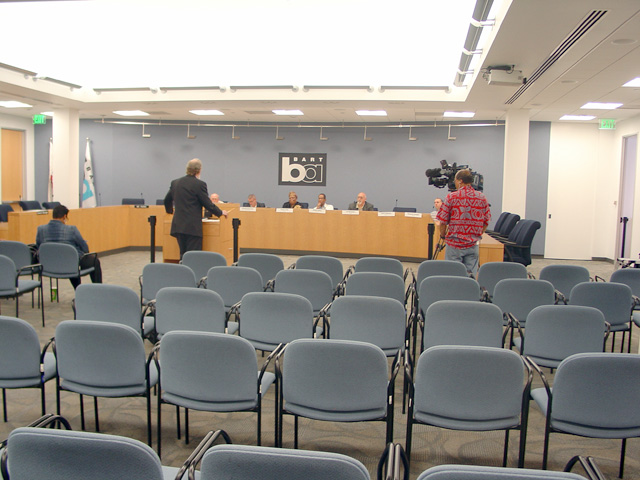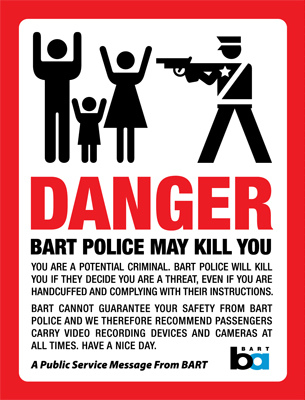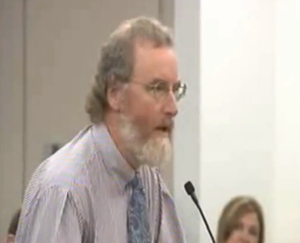Our reply brief and a supporting declaration were filed yesterday in Hasbrouck v. CBP, our Privacy Act and Freedom of Information Act (FOIA) lawsuit seeking records from and about the DHS “Automated Targeting System” of individualized government dossiers about each of the the millions of international travelers to and from the USA, including US citizens.
ATS includes complete copies of airline reservations (“Passenger Name Records” or PNRs), as well as a “risk assessment” for each would-be traveler that is used to decide whether or not to give the airline permission to transport them into, out of, or through the airspace of the USA. As Mr. Hasbrouck’s supplementary declaration supporting our latest reply brief explains:
Tens of thousands of travel agencies, airline offices, and offices of other travel companies around the world, and a million or more individual employees and contractors of these companies, have access through CRSs [Computerized Reservation Systems] or otherwise to PNR databases and the ability to enter data in PNRs. PNRs thus can, and do, contain an unlimited quantity and variety of data originating with numerous third parties around the world, some of it in the form of unstructured free text. CBP requires that, in all cases where a PNR contains a flight between a point in the U.S. and a foreign point, or overflying U.S. airspace, the entirety of the PNR — including the free-text general remarks and whatever other data has been entered by anyone with access to the PNR — must be made available to CBP for import into ATS.
PNRs can contain information about aspects of a journey other than air transportation, such as hotel reservations and other travel services, even in what are considered in travel industry jargon to be “air-only” PNRs. Information about these other travel services can be included in the “OSI” (Other System Information), and “SSR” (Special Service Request) elements of the PNR. For example, in reviewing records from ATS released to another requester by CBP, I have seen a PNR for two people, for whom the airline had reserved a hotel for an involuntary overnight layover, which included an SSR entry with a code showing whether a room with one bed or two had been requested for those two travelers. This is a normal and expected example of standard travel industry practices.
The SORNs [System Of Records Notices, required by the Privacy Act] for ATS specifically mention OSI, SSR, and “General Remarks” 10 among the “Categories of Information in the [ATS] System” and among the types of data derived from PNRs and included in ATS. “OSI” entries can be used by travel agency or airline staff with access to PNRs to enter, and to send to airlines, arbitrary free-text messages. “Remarks” in PNRs are intended to be used for an unlimited range of free-text data entry. This information can — and in some cases does — include remarks about the personal foibles of the traveler (to assist other travel agency or airline staff in dealing with the traveler), and/or derogatory descriptions of interactions with customer service staff. Travelers do not normally see the PNRs that contain information pertaining to them, and do not know or control what information has been entered about them.
Our reply brief also notes that:
Acknowledging the sensitivity of the data in PNRs, Canadian and European Union laws require that private entities that control or host PNRs allow individuals to inspect their own PNRs and obtain information about how they are used. However, U.S. law contains no such requirement.
The focus of our latest arguments is on the government’s claim that — after receiving Mr. Hasbrouck’s Privacy Act request and his appeal of the government’s failure to respond — CBP had the right to issue new regulations retroactively exempting itself from any obligation to respond to the pending request or appeal, to provide Mr. Hasbrouck any of the ATS or other records about him and his travels, to provide him with any accounting of the disclosures of those records to third parties, or to correct inaccurate records or expunge irrelevant ones. As our brief notes:
The retroactive application of the ATS and BCIS exemptions is especially egregious in this case where the processing of Hasbrouck’s Privacy Act requests was completed by CBP’s Office of Intelligence and Operation Coordination on April 2, 2009, but was then sat on for 17 months until after the exemption rules were finalized.
We also contest CBP’s failure to search for Mr. Hasbrouck’s records, in response to his request, in the same way they would if they were searching for records about him as a suspected terrorist. And we contest their refusal to disclose even the records about Mr. Hasbrouck that they admit to having found.
The next step in the case will be oral arguments on the cross-motions for summary judgment on Thursday, August 25, September 15, 2011, 1:30 p.m., before Judge Richard Seeborg (Courtroom 3, 17th Floor), U.S. District Court for the Northern District of California, Phillip Burton Federal Building and U.S. Courthouse, 450 Golden Gate Ave. (between Polk and Larkin, near Civic Center), San Francisco, CA. [Note revised hearing date of September 15th.]
It’s unlikely that any decision will be announced on the spot at the oral argument. Judge Seeborg will most likely take the written submissions and oral arguments under advisement, and issue an initial decision on the motions for summary judgment some weeks or months later. (There is no mandatory deadline for most Federal judicial decisions.)
The public is welcome to attend the oral argument, although the guards at the entrance to the courthouse require visitors to show government-issued ID. See the specific rules for electronic devices in the courthouse and additional rules and information for journalists.


